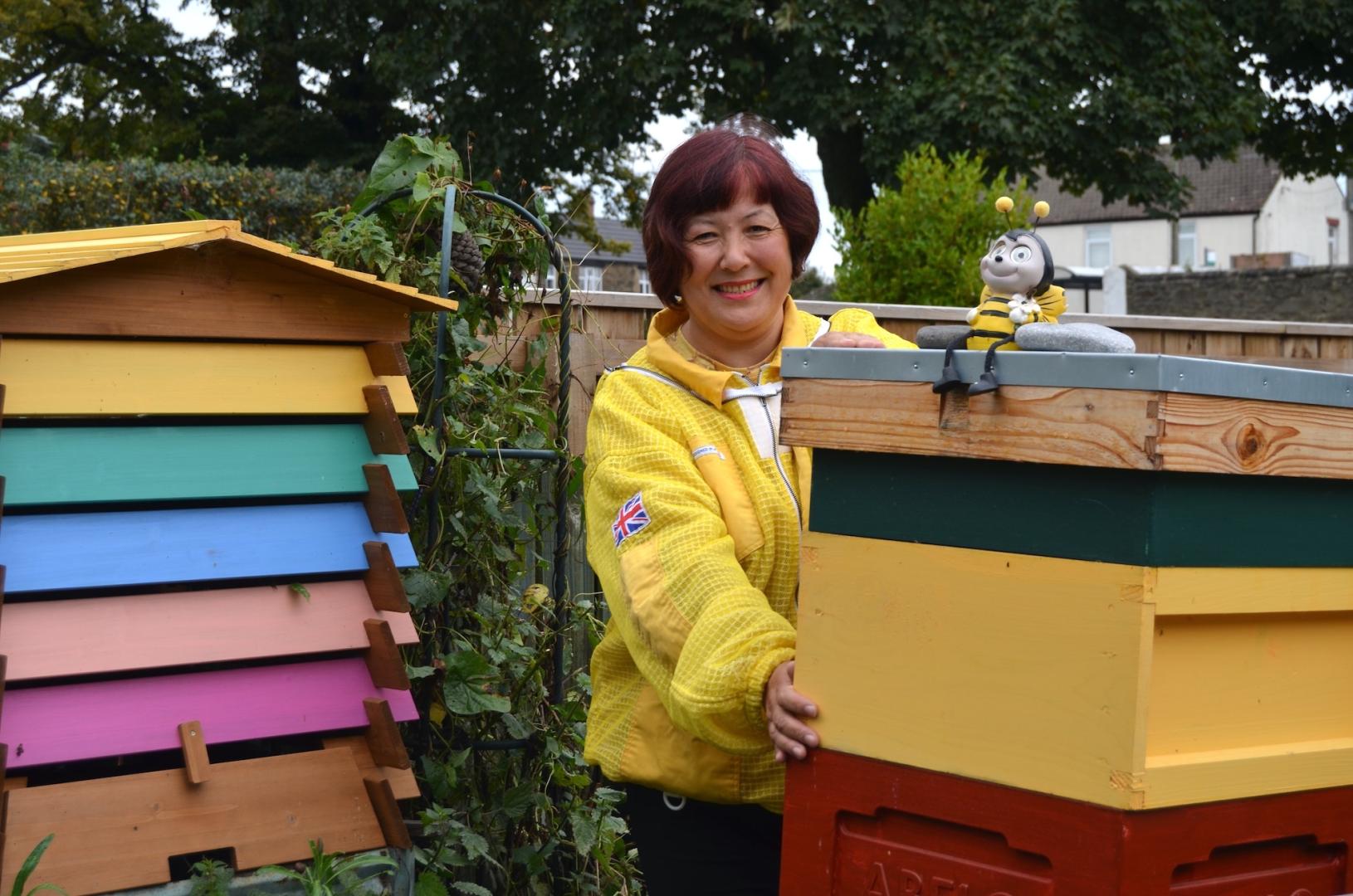Shocked by the dramatic decline in the number of bees, Dina Salenova decided to turn her garden into a hive of activity for the vital pollinators. Dina tells reporter Nicky Carter how and why she did it
Dina Salenova loves bees. Her Evenwood home and garden are adorned with statutes, images and trinkets depicting the honey-giving insects.
After reading about the dramatic worldwide decline in numbers along with the development and potential use of “robot” insects – machines designed to do the work of actual bees – she decided to her bit to help.
She completed a beekeeping course 18 months ago with the Newton Aycliffe Beekeeping Association and has made it her mission to help save the pollinators with colonies of her “extended family” now resident in her garden.
She said: “I only started keeping bees a year and a half ago. I saw this article on a forum that said by 2070 we would have to bring in robotic insects to help pollinate.
“Half of the bees have gone since 2010 and it’s a big problem, especially here and in Europe.”
The article detailed how West Virginia University researchers are developing robot pollinators as a backup for the declining bee population.
“I read the article and I thought I need to do something about that because if we don’t have bees everything will die. Bees are so important to pollinate.”
Since becoming a beekeeper, the former veterinary nurse, who moved to England in 2007 from Belarus, made it her mission to try to counter the decline of bees and has been helped by husband, Neil Stevenson.
She added: “I did the course in April 2023 and bought two hives initially. One of them was aggressive. I got rid of that one and bought another two to replace them.
“As a beginner I was thrown in at the deep end and had to learn fast.”
Dina documented the highs and lows of her first year of beekeeping on her Youtube channel, which has more than 500 subscribers, and continues to provide updates to followers.
She says one of biggest challenges for bees in northern England, apart from short summers, is finding enough food.
“There is not much for the bees up here apart from heather and rapeseed,” Dina said.
“Rapeseed is not great for the bees as they get their proboscis stuck in the pollen and it makes the honey solid.
Being a beekeeper is a hobby but it has taken over Dina and husband Neil’s lives.
“He was scared of them at first, but he doesn’t mind them now. Neil has been researching the best flowers and plants for the bees and has transformed the garden for them so they have plenty to eat.
“Bees are in rapid decline and without them nothing will survive, so we do need to take action – plant more wildflowers and bee friendly plants so we can all survive.”
Neil added: “David Attenborough says four years and that will be it at the current rate of decline.”
As well as the hives in her garden, Dina has an additional ten sited in a forest near Durham and did have another eight on her allotment, but was devastated when six of them died over the summer.
She said: “I managed to move one to a new site on a hillside in Ramshaw thanks to my friend Malcolm (Gallimore).
“But we need to feed the bees and support them as much as we can. In Norway beekeepers are subsidised by the government.
“In France honey produced in the country is a protected food product and in Finland people will pay more just to have honey made in the country.
“In Britain we need to be doing more to help the bees and support keepers look after them.
“I’m thinking of doing some bee awareness events in the village to help people understand how important bees are to everything,” she said.






